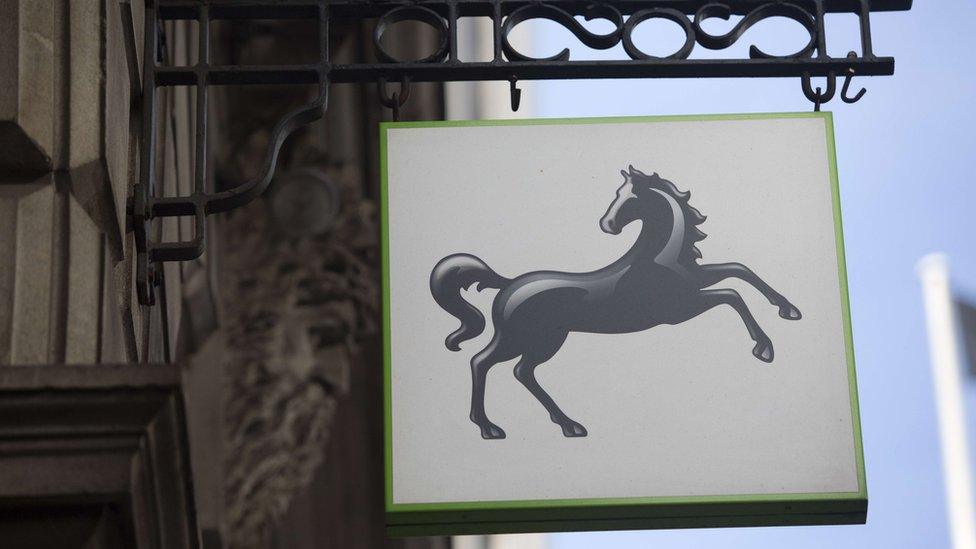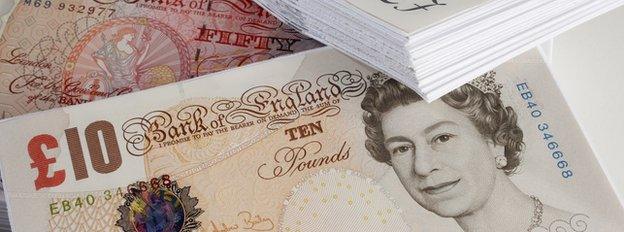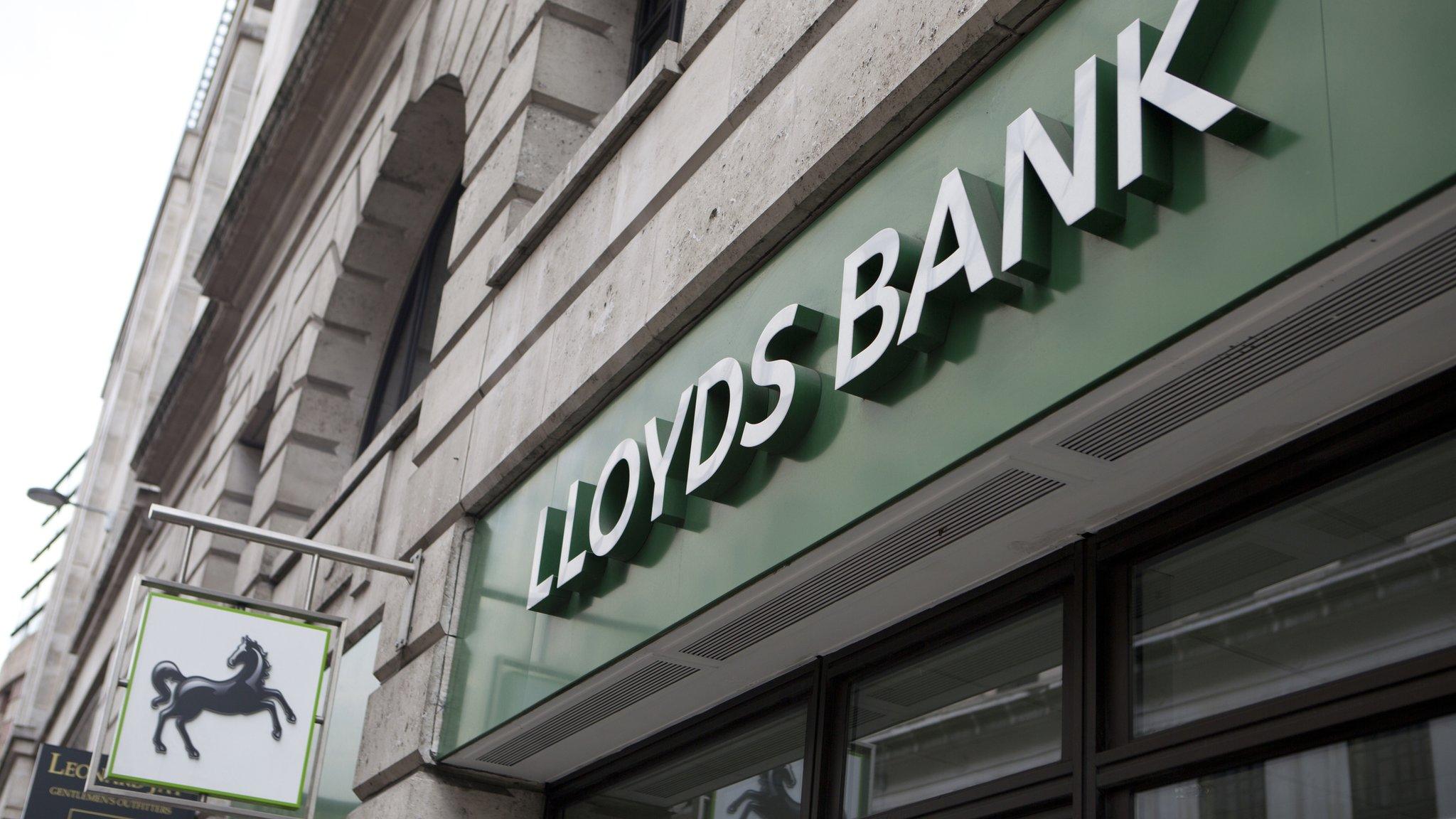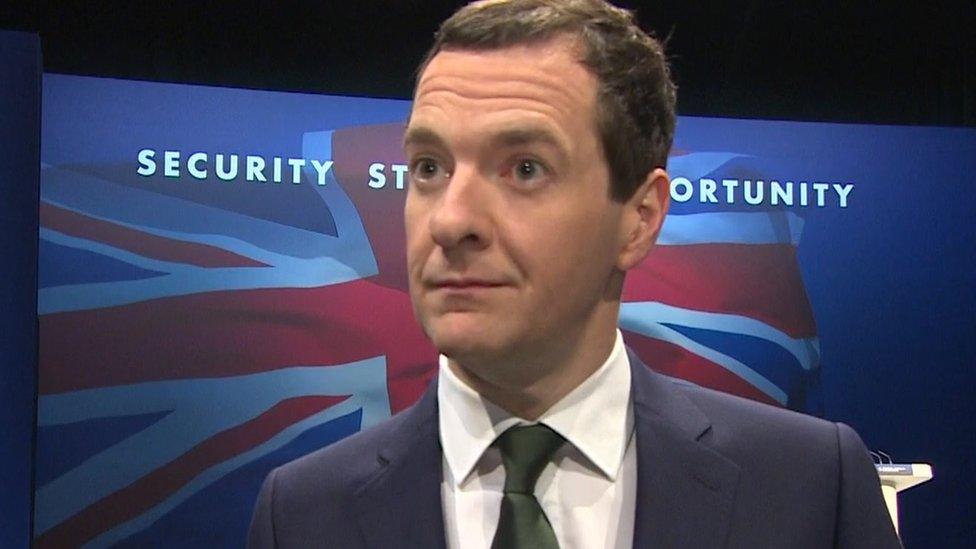Lloyds share sale: Dark horse, or bad bet?
- Published

The government is trying to entice us to buy shares in Lloyds Banking Group, characterised on Britain's High Streets by the familiar black horse.
The Treasury is offering an initial 5% reduction on the market price, plus a "buy-10-get-one-free" deal, if you hold on to the shares for a year.
In response, one senior analyst, warming to the equine theme, declared that "wild horses couldn't drag investors away from this share sale".
But investors will still need to consider this offer very carefully.
Indeed anyone who bought Lloyds shares in May this year will so far have lost up to 13% of their cash.
So looking ahead, will Lloyds turn out to be an also-ran, or will it prove the ultimate dark horse?
'Strong buy'
Lloyds made more than £1bn in profits in the first six months of 2015 - a sign that it has come a long way since it was bailed out by the taxpayer in 2008.
Most analysts agree that it is, at the least, a changed beast.
"Lloyds continues to be well placed to deliver strong and sustainable returns to shareholders, and has made great progress in becoming a far simpler bank, adopting a leaner, easier to understand and less risky business model than it had in 2008," says Heather Tomkinson, research director at investment platform Tilney BestInvest.
According to Hargreaves Lansdown, nine out of 13 brokers have the shares down as a "strong buy".
Dividends
Analysts also expect the bank to raise its dividend. At the moment it is paying only 0.97% a year to investors, but that is expected to rise significantly.
"The dividend you get on the shares you hold will prove quite attractive to those private individuals who are looking for regular income," said Sue Noffke, the head of equities at Schroders.
"That dividend yield could be between 4% and 5% next year, and the year after," she told the BBC.
Compared to savings rates of less than 2% on the best easy access accounts, or 1.7% on 10-year government bonds, that makes the shares look attractive.
"Pensioners in particular are likely to respond to a trusted High Street brand with a decent yield when interest rates are so low," said Laith Khalaf, senior analyst at Hargreaves Lansdown.

Thousands of long-term investors have lost money on Lloyds shares
Skeletons
But hold your horses. Banks in general have had a poor track record when it comes to some aspects of their behaviour, and investors may wonder what other skeletons Lloyds still has in the cupboard.
It has already been fined £218m for its part in the Libor rigging scandal, and a total of £121.3m for the way it handled complaints about Payment Protection Insurance (PPI).
Overall it has made provisions of £13.4bn for PPI compensation - but thanks to last week's announcement by the Financial Conduct Authority (FCA) - it now knows that it will not have to go on paying compensation for ever. By the spring of 2018, the whole PPI affair could be closed.
On the manipulation of foreign exchange rates, Lloyds has already conducted an internal investigation, and told the FCA that it has a clean bill of health.
That leaves just one obvious skeleton in the cupboard: the investigation by the Bank of England and the FCA into Lloyds' takeover of Halifax Bank of Scotland (HBOS) in 2008. The 500 page report still has not been published, seven years after the events concerned.
Risks
Despite the discounts being offered, investors will also need to remember that any money they spend on Lloyds shares will be at risk.
And to qualify for the 10% bonus deal, they will not be able to sell the shares for a year. And who knows what extra difficulties the bank could face before 2017.
"With the possibility of further headwinds for the banking sector, including new accounting rules and further PPI costs, the decision to participate is not clear cut," warns Rebecca O'Keefe, head of investment at Interactive Investor.
Let us not forget too that thousands of Lloyds small shareholders are still nursing heavy losses since the HBOS takeover, not to mention the government's purchase of its stake in the bank, which diluted their holdings.
Back in February 2007, Lloyds shares were worth more than £3 each. At the time of writing they are worth 77p.
So investors will have to have faith that, like the mythical Pegasus, this is now a horse that will grow wings, and fly.
- Published5 October 2015

- Published5 October 2015
